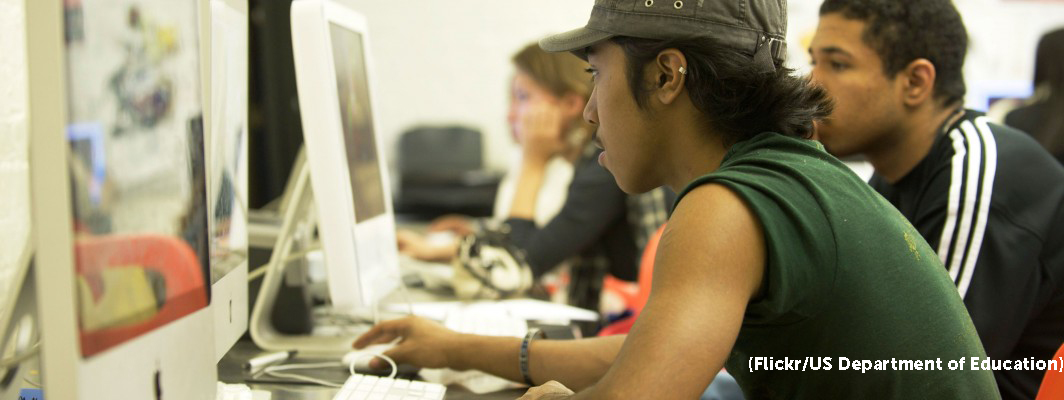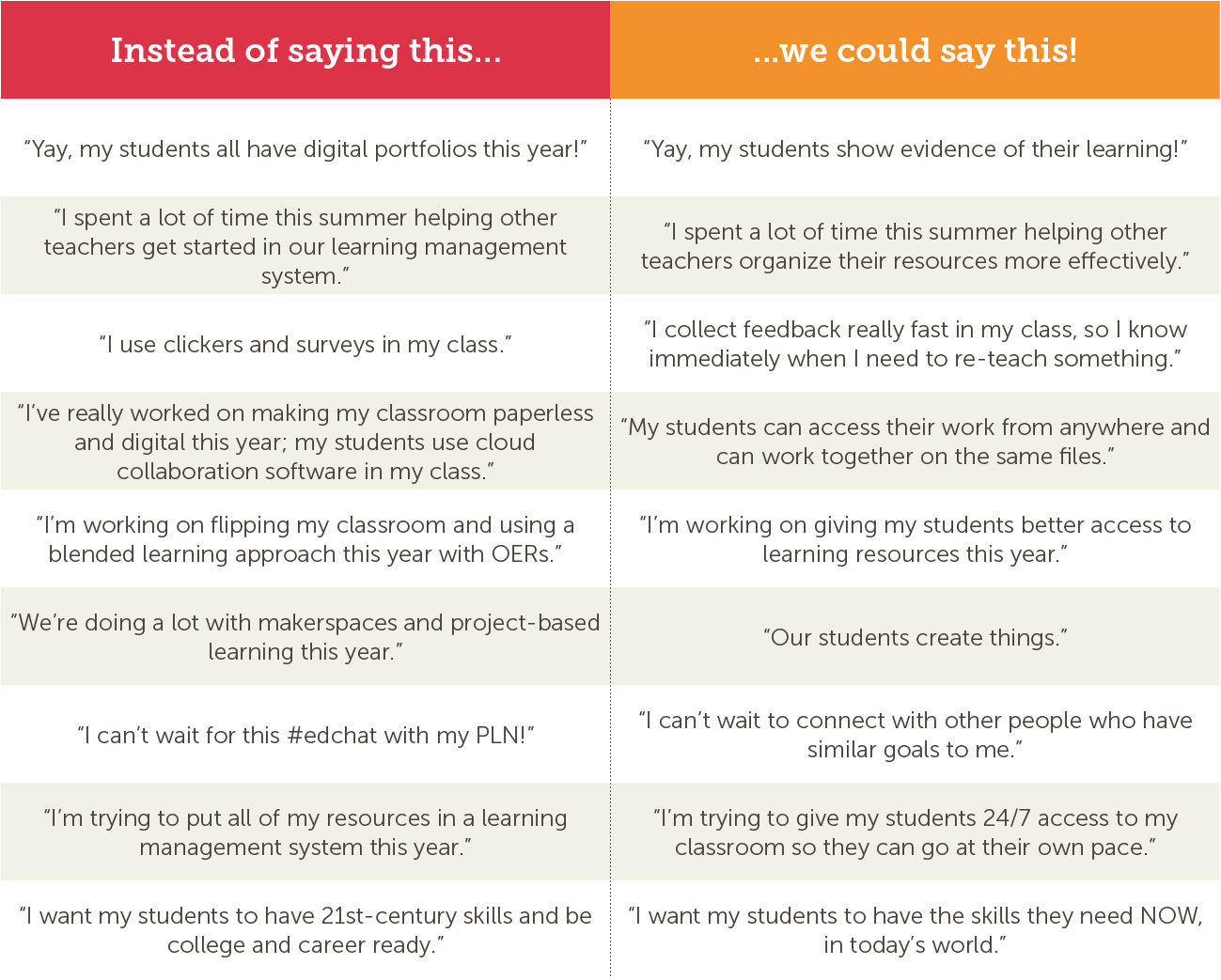
I still remember the first time I held a voluntary workshop on Google Docs for a staff of 100 teachers. I called it “10 Ways to Use Google Docs in Your Classroom.”
Five people showed up.
A week later, I was eating lunch in the staff lounge and heard a colleague say, “They always have an excuse for not turning their work in. They forgot to bring it home, they lost their flash drive, their printer wasn’t working, yada yada.”
I immediately piped up: “You know, have you thought about using Google Docs? Their work is stored online, so they can access it from anywhere.”
“OH! That’s great! Can you show me?”
A week later, I held another workshop. I called it “No Excuses: Anytime, Anywhere Access to Student Work (For You & Them!)”
So many people showed up that we ended up spilling into another computer lab.
I worry sometimes that we’ve become so exclusive with our language that we are pushing people out of the conversations they should be a part of.
I learned a valuable lesson that day: words matter.
In schools all over the nation, “technology coaches” are being hired, “technology workshops” are being held, and classrooms are getting “flipped” and “blended.” Every time we find a way to be more efficient or effective, we come up with a new acronym or word for it. Instead of “connecting with other educators,” we build a “PLN.” Instead of “giving students access to resources,” we “go 1:1 with a blended learning approach.”
Can we please stop?
I worry sometimes that we’ve become so exclusive with our language that we are pushing people out of the conversations they should be a part of. Do parents know what we are talking about when we use this jargon? Do WE even know what we are talking about anymore?
Think for a second about how much the world has changed since the rise of the Internet. Technology has completely transformed the way that businesses operate — and yet, they don’t find a need to use the jargon we’ve created for the way learning now happens.
to make what they were trying to do more efficient and more effective. We need to start viewing technology in education with the exact same perspective, and nothing more.
Imagine what would happen if we stopped using all of the jargon that we’ve created.

Our teachers became teachers to teach. Let’s respect that and focus back on what they do every day in their classrooms. Let’s stop giving workshops on “Google Docs” or “Flipped Classrooms.” Instead, let’s give workshops on “More Efficient Ways to Collaborate with Students” or “More Effective Ways to Deliver Direct Content.”
Let’s stop talking about technology and start talking about learning.